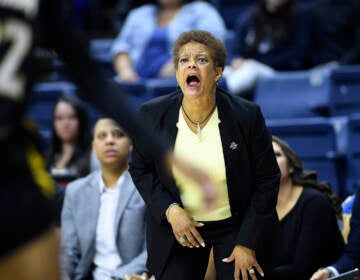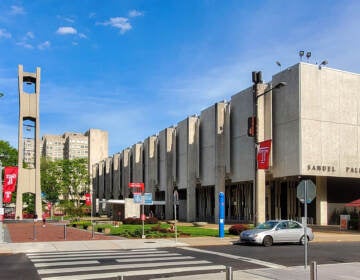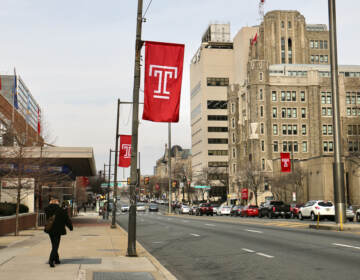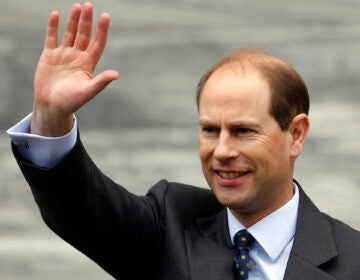Prominent Temple professor who founded Hope Center placed on administrative leave
Sara Goldrick-Rab is a leading voice on college affordability. The university is reviewing complaints about her leadership.
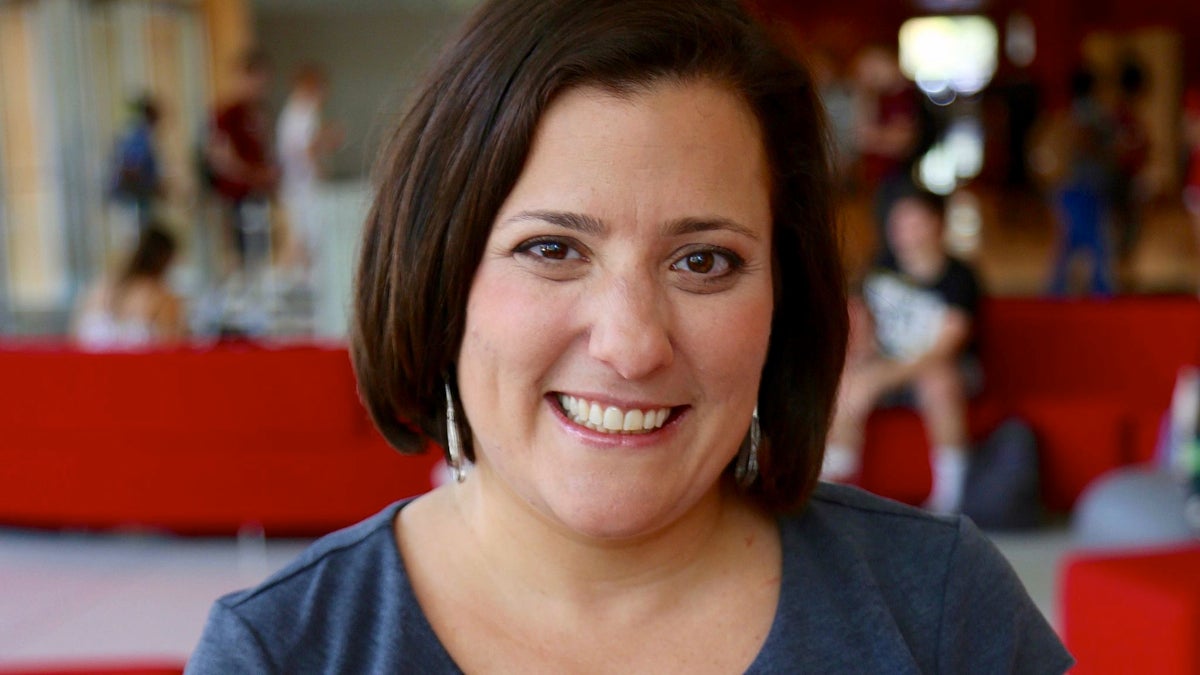
Temple University Professor Sara Goldrick-Rab. (Sara Goldrick-Rab via Wikimedia Commons)
Sara Goldrick-Rab, a prominent Temple University professor and leading voice on college affordability, has been placed on administrative leave while the university investigates complaints about her leadership.
The outspoken sociology and medical professor founded the Hope Center for College, Community, and Justice, a research and advocacy center focused on making higher education more effective and equitable.
She landed millions of dollars in research grants and has drawn national attention to issues like housing and food insecurity among college students.
But a recent report from Inside Higher Ed outlined concerns from more than a dozen current and former Hope Center employees, who described “toxic management” that led to high turnover. Among other complaints, the employees said Goldrick-Rab set unrealistic expectations, leading to long hours and unmanageable workloads, and badmouthed employees who left the center to outside colleagues.
They also claimed Goldrick-Rab “commingled” funds and work between Hope Center and Believe in Students, a nonprofit she founded in 2016 focused on helping college students meet basic needs.
Temple is “aware of the complaints related to the Hope Center and [has] initiated a review,” the university said in a statement, adding that Anne Lundquist, managing director of learning and innovation at the center, will act as interim director during the process.
“Temple takes seriously its responsibility to ensure a supportive workplace climate and professional environment,” the statement read.
Goldrick-Rab said she had been ordered by the university not to speak to the press. Earlier, she told Inside Higher Ed that she asked for the investigation.
Jennie Shanker, grievance chair for Temple’s faculty union, said she was surprised to learn about the accusations and investigation.
“Sara is one of the university’s most important researchers,” Shanker said, adding that she had not heard complaints about the professor. She expressed concern about the future of the Hope Center.
“Hope Center is Sara,” Shanker said. “Wherever Sara is, that’s where the Hope Center is.”
Mary Enoch Elizabeth Baxter, a former Hope Center employee and board member, described her experience at the center as “very pleasant,” and said Goldrick-Rab helped shape her trajectory.
When she joined the center, she was a single mother studying behavior health and human services at Community College of Philadelphia.
“That was the time I was most vulnerable and housing insecure, and having employment at Hope Center during that whole duration of the final year was crucial,” Baxter said. “Sara advocating outside of office hours to help find a safe space for me and my son to live while I finished my degree was definitely instrumental in helping me attain that.”
Baxter credits Hope Center with giving her a platform to talk about her own experience and “issues affecting millions of college students,” which has helped lead to a successful career as an artist and activist.
She said while Goldrick-Rab worked to “create a sense of family” at the center, “she didn’t hesitate on calling out folks, which I think is part of this work.”
The original Inside Higher Ed report, and a follow up piece, paint a less glowing picture. Current and past employees describe a workplace that runs staff members into the ground, where funders and partners are promised “deliverables” that they don’t have the “bandwidth or capacity” to deliver.
“People are beyond exhausted, drained and not being heard,” one former employee said.
A number of employees said they were “subject to unclear or shifting personnel policy issues,” like being told to take vacation days for serious medical issues, and some who quit the center accused Goldrick-Rab of retaliating against them for leaving. One said Goldrick-Rab contacted her boss at her new job to “express concerns about her mental health.” Several also claimed Hope Center staff members were “directed to write grants and do other work” for Goldrick-Rab’s non-profit, Believe in Students.
One employee estimated that 17 people had left the center in a year. The center employs about 50 people.
After the stories were published, a former Hope Center employee came to Goldrick-Rab’s defense in a letter published on Inside Higher Ed’s website. He said the accusations were the opinions of a “small group” and that, while the center isn’t perfect, “it is not the environment portrayed in this piece” and that he loved his time at the “dynamic…high impact” organization.
Goldrick-Rab came to Temple in 2016 from the University of Wisconsin-Madison, bringing the Hope Center with her.
During her first year at the university, she brought in more than $6 million in grants for research on making college more affordable, a larger-than-usual amount for a Temple professor.
More recently, the Hope Center released the nation’s largest annual survey on college students’ basic needs insecurity or BNI, which measures whether basic needs like food and housing are being met.
Jennie Shanker, with the Temple Association of University Professionals, said the union
plans to file a grievance on Goldrick-Rab’s behalf, “based on the violation of the discipline process in the contract” and “retaliation for protected activities.” She noted that Goldrick-Rab raised concerns about Gregory Anderson, the dean of Temple’s college of education and human development.
“It seems hard to understand why she would be treated like this if there wasn’t some kind of connection,” Shanker said. Goldrick-Rab told Inside Higher Ed that she has faced retaliation since she was publicly named as one of Anderson’s critics.
Several years ago, she complained about “hostile behavior” by Anderson and requested a transfer out of his college, the Philadelphia Inquirer reported. Her request was ultimately granted, and she moved to Temple’s school of medicine.She also signed a 2020 letter raising concerns about Anderson’s leadership, along with about half of the college’s full-time faculty. An outside investigation commissioned by Temple found no violation of law or policy, but the university did acknowledge a need to improve the culture and environment within the college, according to the Inquirer.
WHYY is your source for fact-based, in-depth journalism and information. As a nonprofit organization, we rely on financial support from readers like you. Please give today.




